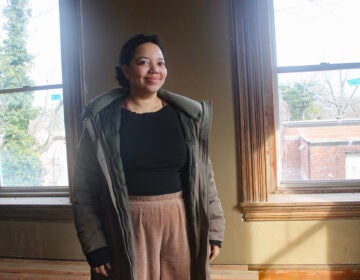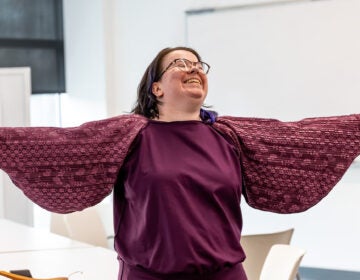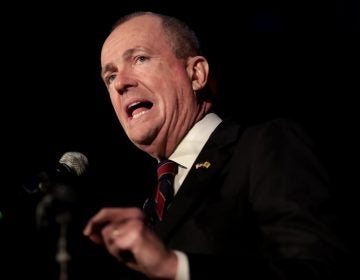Ending stigma of opioid addiction behind major N.J. agency overhaul

Gov. Chris Christie wants to transfer responsibility for New Jersey’s four state psychiatric hospitals, community-based mental health and addiction services, and other behavioral health programs from the Department of Human Services to the Department of Health later this summer.
The surprise move – which has triggered concerns among some lawmakers and advocates asking for more discussion — would involve the relocation of more than 200 state workers and some $975 million in state and federal funding for the Division of Mental Health and Addiction Services, or DMHAS. It would also shift oversight of programs that are expected to serve nearly 100,000 Garden State residents in the coming year and the responsibility for implementing dozens of laws designed to protect and treat some of its most vulnerable residents, according to a copy of Reorganization Plan No. 001-2017 obtained by NJ Spotlight.
The governor’s plan is designed to improve government efficiency and coordination, and enable patients to receive more complete and effective care by better integrating behavioral and physical health services, now overseen by two separate departments. Christie has made a priority of anti-addiction efforts in his final year in office and signed an executive order in January declaring it to be a public health crisis.
Double trouble
Studies have shown that many patients with serious mental illness also suffer from chronic conditions or other physical health challenges that can go undiagnosed and untreated in a bifurcated system; as a result, these individuals generally die decades sooner than patients without behavioral health diagnoses. One report released last year by researchers at Seton Hall underscored the need for better coordination between offices within DOH and DHS in order to provide a more holistic, integrated system.
The proposed shift will take effect in 60 days, following a period of public comment, unless both the Assembly and Senate return to Trenton this summer and pass a concurrent resolution opposing the change. Christie notified lawmakers of his plan on Thursday, June 29 — the first of five days they spent wrangling over the 2018 state budget and an unrelated insurance reform that the governor wanted in return for his sign-off on new spending.
Legislative leaders appeared to be considering their options on Monday, but several key lawmakers said they have serious concerns about the proposal and its timing, just six months before the two-term Republican governor will leave office. The Senate is scheduled to return for a vote on other business Thursday.
“No question mental health and substance addiction disorder are health issues,” said Assemblywoman Valerie Vainieri Huttle, (D-Bergen), a champion for community mental health services. “However, I’m questioning the governor’s plan to move it,” she added, “especially without discussing this with the Legislature.”
Major transition
Several mental health advocates also raised questions about the shift, which they fear will leave behavioral health providers and their patients without the support they need from the state. The timing is particularly worrisome, they said, since DMHAS is currently involved with a major reform in how it pays dozens of local mental health and addiction providers.
“No one could argue with the philosophical underpinnings of this, but we do have some concerns,” said Debra Wentz, president and CEO of the New Jersey Association of Mental Health and Addiction Agencies, which represents community-based providers statewide. “Undertaking a major systemic change” at the same time as the billing reform “could be a significant disruption to services,” she added.
NJAMHA and others have been supportive of efforts to better integrate physical and behavioral care, but Wentz said, “Breaking down that barrier doesn’t take merging a whole department.”
Under the current system, the DOH oversees public health programs like immunization and maternal health efforts, licenses and regulates hospitals and nursing homes, supports local health offices, and gathers data and coordinates efforts to address certain diseases or health disparities, among other responsibilities. The department is slated to spend nearly $1.6 billion this year and, with 1,100 employees, is one of the smaller agencies in the state, according to the plan.
State’s largest department
Human services is the state’s largest department, with some 11,000 workers and a roughly $12 billion budget – much of it from federal sources. It operates Medicaid or FamilyCare; oversees programs and residential facilities for developmentally disabled, blind, deaf and elderly residents; and coordinates a host of welfare programs, in addition to its work through DMHAS and other efforts.
While the proposed move came as news to advocates last week, Christie’s office said both departments were involved with the proposal, which drew heavily from last year’s Seton Hall report by Prof. John Jacobi, funded by the Nicholson Foundation. The study faulted bureaucratic hurdles and a lack of coordination between DHS and DOH for barriers in providing integrated care to vulnerable patients and said that while some efforts have improved coordination, more remains to be done.
At the time, Christie’s spokesman Brian Murray said, “This administration looks forward to examining the report in detail and exploring the optimal system for meeting both the physical and behavioral healthcare needs of our residents.”
The reorganization plan Christie proposed last week appears to put several of these recommendations into action and underscores how addiction services in particular should be combined with other population health initiatives overseen by the DOH. The plan also notes that the department recently received national accreditation for its public health work.
“Transferring the provision of mental health and addiction services to DOH is necessary to improve heath care, remove bureaucratic obstacles to the integration of physical and behavioral health care, and effectively address substance use disorder as the public health crisis that it is,” the proposal notes.
Shift makes sense
DOH Commissioner Cathleen D. Bennett agreed the shift made sense. “This reorganization recognizes that mental health and behavioral health problems in general, and opioid addiction in particular, need to be treated as illnesses no different than infectious diseases such as Zika virus or chronic conditions such as hypertension, heart disease, diabetes, or obesity,” Bennett said, stressing the need for prevention efforts, especially when it comes to addiction.
“Only through such a public health approach can we overcome the stigma that for too long has characterized efforts to treat addiction as something that must be cordoned off from the rest of healthcare,” Bennett added.
The move also seemed appropriate to officials at Human Services. “DHS has cultivated a robust behavioral health system of care that will evolve with and benefit from the public health and regulatory expertise offered by DOH,” noted spokeswoman Nicole Brossoie. “DOH is the state’s point agency on research and prevention and therefore, perfectly positioned to address the public health crisis of opioid addiction facing so many of our residents.”
But Carolyn Beauchamp, president and CEO of the Mental Health Association in New Jersey, said the two departments have vastly different roles: DOH plays a largely regulatory function, while DHS has vast experience running contract-based community programs. Another concern she and others have is that DHS will still be responsible for Medicaid, which funds care for a majority of people seeking local behavioral health services. Separating this function from the work of DMHAS only creates another division, she said.
Slowing service delivery
“It doesn’t meet the people’s healthcare needs,” Beauchamp said. “It will do nothing but slow (service delivery) down. I’m concerned that it will not serve our clients well.”
The potential shift also triggered concerns for some advocates for individuals with disabilities. Among other things, Joe Young, executive director of Disability Rights New Jersey, said he is worried about the impact on folks who receive services from DHS’s Division of Developmental Disabilities in addition to DMHAS; the department’s Medicaid office often gets involved as well. Young said more discussion is needed first.
“It has been a long and painstaking process to improve coordination between these two divisions” within DHS, Young said and, while gains have been made, more needs to be done. “Separating them into two different departments will compound the already existing problems.”
Sen. Joe Vitale, (D-Middlesex), longtime chair of the health committee and sponsor of a bill that would address some of the concerns about integrating mental and physical care, also raised serious questions. Such a significant change should involve some consultation with lawmakers, he said.
“We do need better integration” of physical and mental care, Vitale said, “I just don’t know whether or not this is helpful.”
_______________________________________________________________________
NJ Spotlight, an independent online news service on issues critical to New Jersey, makes its in-depth reporting available to NewsWorks.
WHYY is your source for fact-based, in-depth journalism and information. As a nonprofit organization, we rely on financial support from readers like you. Please give today.




